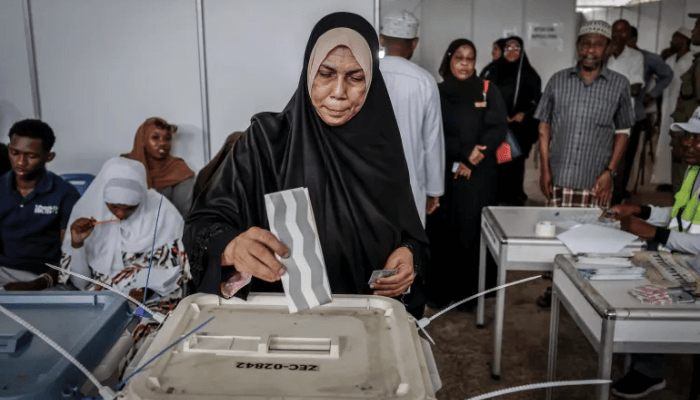Voting begins in Tanzania as major opposition locked out of race
Polls have opened in Tanzania for presidential and parliamentary elections that many critics say are taking place without real competition. More than 37 million registered voters are expected to cast their ballots from 7am to 4pm local time, with results due within three days, according to the electoral commission.
President Samia Suluhu Hassan, 65, is widely expected to secure another term after the two strongest opposition parties were blocked from the ballot. Chadema leader Tundu Lissu is on trial for treason, charges he rejects. His party was disqualified in April for refusing to sign what officials called a code of conduct.
Read also: Tanzania: Hassan set to win October 29 election on weak opposition
The second largest opposition group, ACT Wazalendo, also saw its presidential hopeful Luhaga Mpina excluded after the attorney general raised an objection. Only candidates from smaller parties remain in the contest against Hassan.
Speaking ahead of the vote, a senior CCM official said the ruling party “is confident the people will choose stability and progress”. But opposition supporters say the system has been designed to crush dissent. A Chadema member in Dar es Salaam told reporters: “How can you call this an election when the main challengers are not allowed to run?”
Read also: SAHCO secures contract to handle Air Tanzania’s ground services
Hassan came to office in 2021 after the death of John Magufuli. She was initially praised for releasing some political prisoners and allowing more openness in the media. “We are committed to human rights. We have nothing to hide,” she said last year, after ordering an inquiry into reports of kidnappings. No findings have been published.
Human Rights Watch says the authorities “have suppressed the political opposition and critics of the ruling party and stifled the media”. A US based conflict research group, ACLED, describes CCM as determined to remain “the last hegemonic liberation party in southern Africa”.
The Tanganyika Law Society reports at least 83 abductions since Hassan took power, with another 20 cases alleged in recent weeks. The government denies any involvement.
Read also: Air Tanzania commences Lagos-Dar es Salaam flights
Despite the tensions, Tanzania has seen little street protest. The economy grew by 5.5 percent last year, helped by tourism, agriculture and mining. Hassan has promised major road and rail schemes and a plan to provide universal health insurance if she wins again.
Today, attention turns to polling stations across the country and in the semi autonomous islands of Zanzibar, where voters are also choosing local leaders for a 400 seat parliament.
For many ordinary Tanzanians, the choice feels less about political rivalry and more about the future of a country that has prided itself on peace. As one voter in Arusha put it: “We love calm in Tanzania. We can only hope this election keeps it.”

